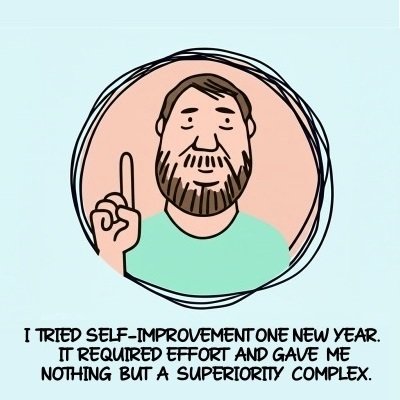 Dry January is marketed as a ritual of renewal—a sober start to the year, a clean break from December’s excess. But beneath its virtuous packaging lies a familiar cycle. Instead of encouraging balance, it often replicates the very problem it claims to fix: the swing between indulgence and abstinence.
Dry January is marketed as a ritual of renewal—a sober start to the year, a clean break from December’s excess. But beneath its virtuous packaging lies a familiar cycle. Instead of encouraging balance, it often replicates the very problem it claims to fix: the swing between indulgence and abstinence.
This binary—binge, then ban—doesn’t disrupt harmful habits. It reinforces them. By framing total sobriety as a seasonal corrective, Dry January legitimizes the very extremes it should disavow. True discipline is not abstention by calendar. It is the quiet, daily refusal to be ruled by impulse or fashion.
The same pattern surfaces beyond alcohol. Crash diets after holiday feasts. All-night cramming before exams. Financial detoxes to offset overspending. Each offers the illusion of control in the wake of excess—a performance of restraint with no staying power.
Discipline rooted in deprivation is flimsy. It fades with novelty. Lasting change comes from steady practice, not dramatic purges. If one must abstain, let it be for clarity, not conformity.
Idea for Impact: The antidote to overindulgence isn’t temporary denial—it’s moderation before the excess begins.
 Few things feel more exhausting than the annual tradition of drafting New Year’s
Few things feel more exhausting than the annual tradition of drafting New Year’s 
 We romanticize transformation—new routines, cleaner diets, sharper habits. But in practice, change rarely arrives in cinematic sweeps. It comes in quieter forms: a switch from soda to water, a walk around the block, skipping the evening snack. Small choices. Easily overlooked. In aggregate,
We romanticize transformation—new routines, cleaner diets, sharper habits. But in practice, change rarely arrives in cinematic sweeps. It comes in quieter forms: a switch from soda to water, a walk around the block, skipping the evening snack. Small choices. Easily overlooked. In aggregate,  The paths you tread most lightly are often the ones that later shape your life. A single moment of indulgence, a flicker of forgetfulness—each
The paths you tread most lightly are often the ones that later shape your life. A single moment of indulgence, a flicker of forgetfulness—each  Another heavyweight in consumer goods, Diageo, has entered a
Another heavyweight in consumer goods, Diageo, has entered a .jpg)
 Yet, one can’t help but ask: Why hadn’t Munoz engaged with employees during his decade on the board of United’s parent company (and another five years at the acquiring company, Continental Airlines)? Wise board members often gain an
Yet, one can’t help but ask: Why hadn’t Munoz engaged with employees during his decade on the board of United’s parent company (and another five years at the acquiring company, Continental Airlines)? Wise board members often gain an  Most people look for big wins. Most people want rapid progress. Most people aim to knock it out of the park. This is
Most people look for big wins. Most people want rapid progress. Most people aim to knock it out of the park. This is  Friction audits assist organizations in identifying inefficiencies by pinpointing bottlenecks, obstacles, or pain points in their processes. By
Friction audits assist organizations in identifying inefficiencies by pinpointing bottlenecks, obstacles, or pain points in their processes. By  Fitness enthusiasts adhering to a training plan often grapple with the guilt of missing a workout. The temptation to compensate by intensifying the next session or sneaking in
Fitness enthusiasts adhering to a training plan often grapple with the guilt of missing a workout. The temptation to compensate by intensifying the next session or sneaking in